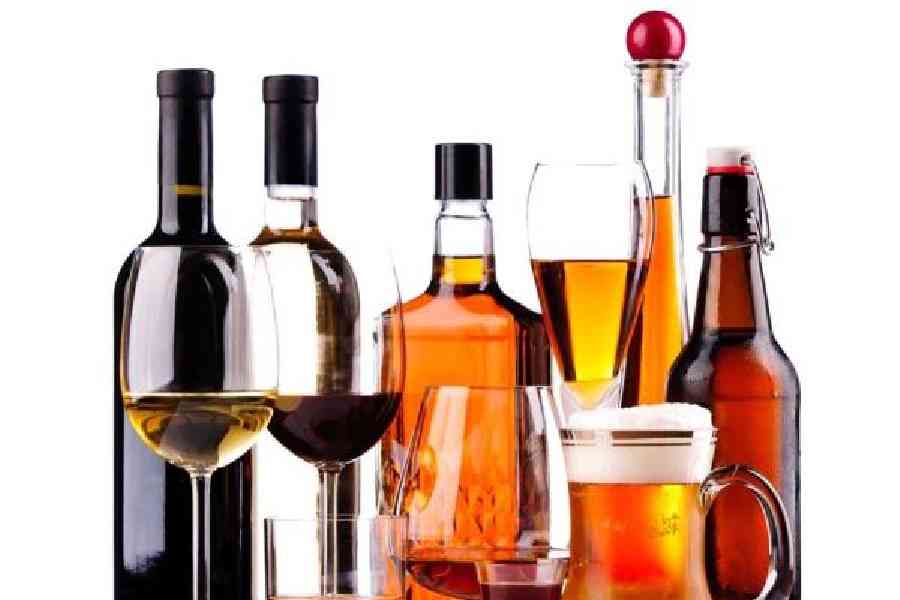Alcohol is a leading cause of cancer, and alcoholic beverages should carry a warning label as packs of cigarettes do, the US surgeon-general said on Friday.
It is the latest salvo in a fierce debate about the risks and benefits of moderate drinking as the influential US Dietary Guidelines for Americans are about to be updated. For decades, moderate drinking was said to help prevent heart attacks and strokes.
That perception is embedded in the dietary advice given to Americans. However, growing research has linked drinking, sometimes even within the recommended limits, to various types of cancer.
Labels currently affixed to bottles and cans of alcoholic beverages warn about drinking while pregnant or before driving and operating other machinery, and about general “health risks”.
But alcohol directly contributes to 1,00,000 cancer cases and 20,000 related deaths each year, the surgeon-general, Dr Vivek Murthy, said.
He called for updating the labels to include a heightened risk of breast cancer, colon cancer and at least five other malignancies now linked by scientific studies to alcohol consumption.
“Many people out there assume that as long as they’re drinking at the limits or below the limits of current guidelines of one a day for women and two for men, that there is no risk to their health or well-being,” Dr Murthy said in an interview.
“The data does not bear that out for cancer risk.”
Only Congress can mandate new warning labels of the sort Dr. Murthy recommended, and it’s not clear that the incoming administration would support the change.
Still, President-elect Donald J. Trump does not drink, and his choice to head the health and human services department, Robert F. Kennedy Jr., swore off alcohol and drugs decades ago, and says he regularly attends AA meetings.
There is no question that heavy consumption is harmful. But supporters of moderate drinking — including makers of wine, beer and spirits, and some physicians and scientists — argue that a little alcohol each day may reduce cardiovascular disease, the No. 1 killer in the US.
Newer scientific studies have criticised the methodology of earlier studies, however, and have challenged that view, which was once a consensus.
While most cancer deaths occur at drinking levels that exceed the current recommended dietary guidelines, the risk for cancers of the breast, the mouth and the throat may rise with consumption of as little as one drink a day, or even less, Murthy said on Friday.
Overall, one of every six breast cancer cases is attributable to alcohol consumption, Murthy said. More recent studies have also linked moderate alcohol consumption to certain forms of heart disease, including atrial fibrillation, a heart arrhythmia.
Two scientific reviews will be used to inform the updated recommendations about alcohol consumption in the federal dietary guidelines.
Five years ago, the scientific report that informed the writing of the 2020-2025 dietary guidelines acknowledged that alcohol is a carcinogen and generally unhealthy and suggested “tightening guidelines” by capping the recommendation for men at one standard drink, or 14 grams of alcohol a day.
When the final guidelines were drafted, however, there was no change in the advice that moderate drinking of up to two drinks a day for men was acceptable.
New York Times News Service










